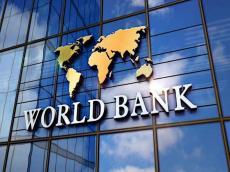|
|
TODAY.AZ / Business
World Bank urges Azerbaijan to accelerate reforms to attract private investment
28 October 2025 [17:36] - TODAY.AZ

The World Bank has recommended that Azerbaijan intensify reforms aimed at improving its business environment and attracting greater private investment, Azernews reports, citing the Bank’s latest report.
The institution emphasised the need to enhance tax policy predictability, ensure a level playing field for businesses, and strengthen judicial mechanisms to foster investor confidence.
According to the report, Azerbaijan’s Socio-Economic Development Strategy for 2022–2026 prioritises diversifying the economy, reducing dependence on hydrocarbons, and expanding the role of the private sector. “The success of these goals depends on boosting investment levels — particularly private investment in the non-hydrocarbon sector,” the report noted.
World Bank experts said increasing private investment outside the energy sector will require structural reforms to remove barriers to doing business. “The Azerbaijani government continues to make consistent efforts to support the private sector by improving the business climate,” the report added.
Analysts highlighted that regular consultations between the public and private sectors are key to resolving investment challenges. One proposal is the adoption of a medium-term tax framework that would inform businesses in advance about planned tax changes, a step the Bank believes would enhance predictability and reduce uncertainty for investors.
To create equal conditions for market participants, the Bank recommended strengthening the legal and institutional base for competition and adopting regulations to ensure compliance. It also suggested promoting competition neutrality and separating the state’s regulatory and operational roles, especially in sectors dominated by state-owned enterprises, to enable greater private participation.
The World Bank further advised developing a state aid control framework to limit market distortions arising from government support for specific enterprises or industries.
The report stressed the importance of establishing a long-term commitment to targeted business climate reforms, with participation from both public and private stakeholders, to enhance policy predictability and reduce market uncertainty. It also called for stronger institutional support for SMEs through agencies such as SMBDA, AZPROMO, and AzExport, helping them expand access to domestic and international markets.
In addition, the Bank encouraged Azerbaijan to continue implementing judicial reforms and address gaps in the legal framework, including dispute resolution mechanisms for intellectual property rights.
“Implementing structural reforms that remove these constraints can stimulate private investment inflows and further support the diversification of Azerbaijan’s economy,” the World Bank concluded.
URL: http://www.today.az/news/business/263016.html
 Print version
Print version
Connect with us. Get latest news and updates.
See Also
- 04 March 2026 [18:15]
Top five non-oil export destinations identified for January 2026 - 04 March 2026 [12:16]
Iraq suspends Kurdistan oil exports to Türkiye’s Ceyhan Port amid Iran conflict - 04 March 2026 [10:00]
Azeri Light trades well above 2026 budget benchmark - 03 March 2026 [17:02]
SOCAR President meets SPP chairman to boost Azerbaijan–Slovakia energy ties - 03 March 2026 [16:42]
Azerbaijan accelerates development of green energy corridors connecting Europe and Central Asia - 03 March 2026 [10:42]
Fitch affirms ratings of Southern Gas Corridor and seven EMEA infrastructure firms - 02 March 2026 [14:15]
Azerbaijan highlights sustainable development progress at UN Regional Forum in Bangkok - 02 March 2026 [11:19]
ASCO completes major overhaul of President Heydar Aliyev tanker - 02 March 2026 [10:00]
OPEC+ boosts production as global oil market shows stability - 01 March 2026 [22:35]
Azerbaijan’s Interbank Card Center reports decline in transaction volume for January
Most Popular
 Oil and Sargsyan: how Yerevan dreamed of making money from resources of Caspian Sea
Oil and Sargsyan: how Yerevan dreamed of making money from resources of Caspian Sea
 Iran's IRGC claims launching attack on Israeli PM Netanyahu's office
Iran's IRGC claims launching attack on Israeli PM Netanyahu's office
 Erdogan's Ethiopia visit: how Türkiye building power along Red Sea corridor [INTERVIEW]
Erdogan's Ethiopia visit: how Türkiye building power along Red Sea corridor [INTERVIEW]
 Iran’s Ambassador thanks Azerbaijan for support
Iran’s Ambassador thanks Azerbaijan for support
 SGC Advisory Board: Baku has shown what more it can do for Europe
SGC Advisory Board: Baku has shown what more it can do for Europe
 US aircraft crash in Kuwait as Iran claims F-15 was shot down
US aircraft crash in Kuwait as Iran claims F-15 was shot down
 Total of 192 people evacuated from Iran to Azerbaijan, yet
Total of 192 people evacuated from Iran to Azerbaijan, yet
